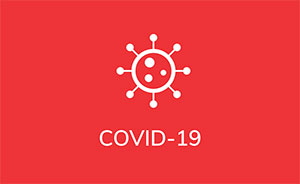Patients with chronic lymphocytic leukemia (CLL) and small lymphocytic lymphoma (SLL) are immunocompromised, meaning their immune system does not work as well as in healthy people. As a result, they cannot make enough antibodies or the right type of antibodies to fight off various infections, including COVID-19. Thus, antibodies from an external source can help prevent or treat COVID-19.
In this interview, Dr. Brian Koffman spoke with Dr. Shmuel Shoham, a Professor of Clinical Medicine at Johns Hopkins University. Dr. Shoham specializes in the infectious disease care of immunocompromised patients, including those with leukemias and lymphomas. They discussed the use of convalescent plasma to treat COVID-19.
How do people get immunity?
There are two ways that people acquire immunity to viruses.
- Active immunization – The body is exposed to or given a substance, processes it, and then starts making antibodies against it and activates other parts of the immune system against it. Vaccines are the best example of this. However, certain conditions and medications can interfere with this process.
- Passive immunization – Antibodies already formed are given to patients who cannot make them. Other people with healthy immune systems can generate these antibodies, or they can be made in a laboratory. Evusheld is an example of a lab-made monoclonal antibody that prevents COVID-19 in people who have trouble making antibodies.
What is convalescent plasma?
Using convalescent plasma to treat disease has been around since the 19th century. “Convalescent” means that someone had an infection and recovered from it. Plasma is the liquid part of blood that has antibodies in it. So convalescent plasma is a transfusion of antibodies from someone who has recovered from an infection. For example, plasma with the highest levels of antibodies against SARS-COV-2 (the virus that causes COVID-19) comes from a person who has (1) been vaccinated against COVID-19, and who (2) has also recovered from a breakthrough COVID-19 infection.
Does convalescent plasma work for everyone?
No, there are some people convalescent plasma works in, some people it doesn’t work in, and then others who fall somewhere in the middle. For example, at the beginning of the COVID-19 pandemic, a lot of the early research tried to give convalescent plasma to COVID-19 patients who were sick enough to be in the ICU with severe disease, and it didn’t work. So over time, researchers have been working to determine the right dose, timing, and patient population for convalescent plasma to work.
Who is the right person to receive convalescent plasma?
Convalescent plasma is most effective for someone who cannot make enough of their antibodies to fight the infection, such as patients with CLL or SLL.
What is the right time to give convalescent plasma?
The best time to give convalescent plasma is in the viral stage of the infection (i.e., the virus is doing damage). Later on, during COVID-19, the immune system may have the virus under control, but now the immune system’s overreaction may be causing damage. This often happens in patients who do not have CLL / SLL or other immune-compromising conditions. Therefore, the convalescent plasma is not necessarily beneficial for them because their body already has the infection under control.
However, CLL / SLL patients don’t necessarily fit into a neat little box or timeline. Because their immune system is dysregulated, they can experience multiple stages of infection at the same time. So giving antibodies may still provide some benefit, even when a patient is sicker and further along in the course of the infection.
Will convalescent plasma work against the new COVID-19 variants?
One of the concerns with monoclonal antibodies made in the lab is that as new COVID-19 variants arise, the antibodies will no longer be effective. However, the body is much smarter than anything we can make in the lab. It can produce polyclonal antibodies that go after the virus at multiple targets and are more likely to stay effective. Unlike monoclonal antibodies such as Evusheld or bebtelovimab, convalescent plasma is polyclonal and is more likely to remain effective longer. It is also most likely to be effective if collected closer in time and in geographic proximity to the patient who needs it. This is because the person the plasma is coming from is more likely to have been infected with the same variant as the person receiving the plasma.
Is convalescent plasma accessible?
Many healthcare providers are unaware that convalescent plasma is available and effective in patients with CLL / SLL. If you go to a major teaching hospital that treats many patients with CLL / SLL, they are more likely to say that convalescent plasma is an option. However, if you are at a hospital that does not regularly care for patients with CLL / SLL, you may find that it’s not an option because they believe it is ineffective. What works for CLL / SLL patients may differ from what works for immunocompetent patients. Patients may need to advocate for themselves to get it.
Current guidelines state that convalescent plasma is not recommended for the general population of patients with COVID-19 who have been hospitalized. However, those recommendations do not specifically address patients who are immunocompromised. In patients with CLL / SLL, including those hospitalized, convalescent plasma is an effective treatment though it hasn’t been studied in large phase 3 clinical trials yet because there hasn’t been enough awareness or individuals to enroll in such a trial.
Please enjoy this brief interview with Dr. Shoham.
Take care of yourself first.
Ann Liu, PhD



